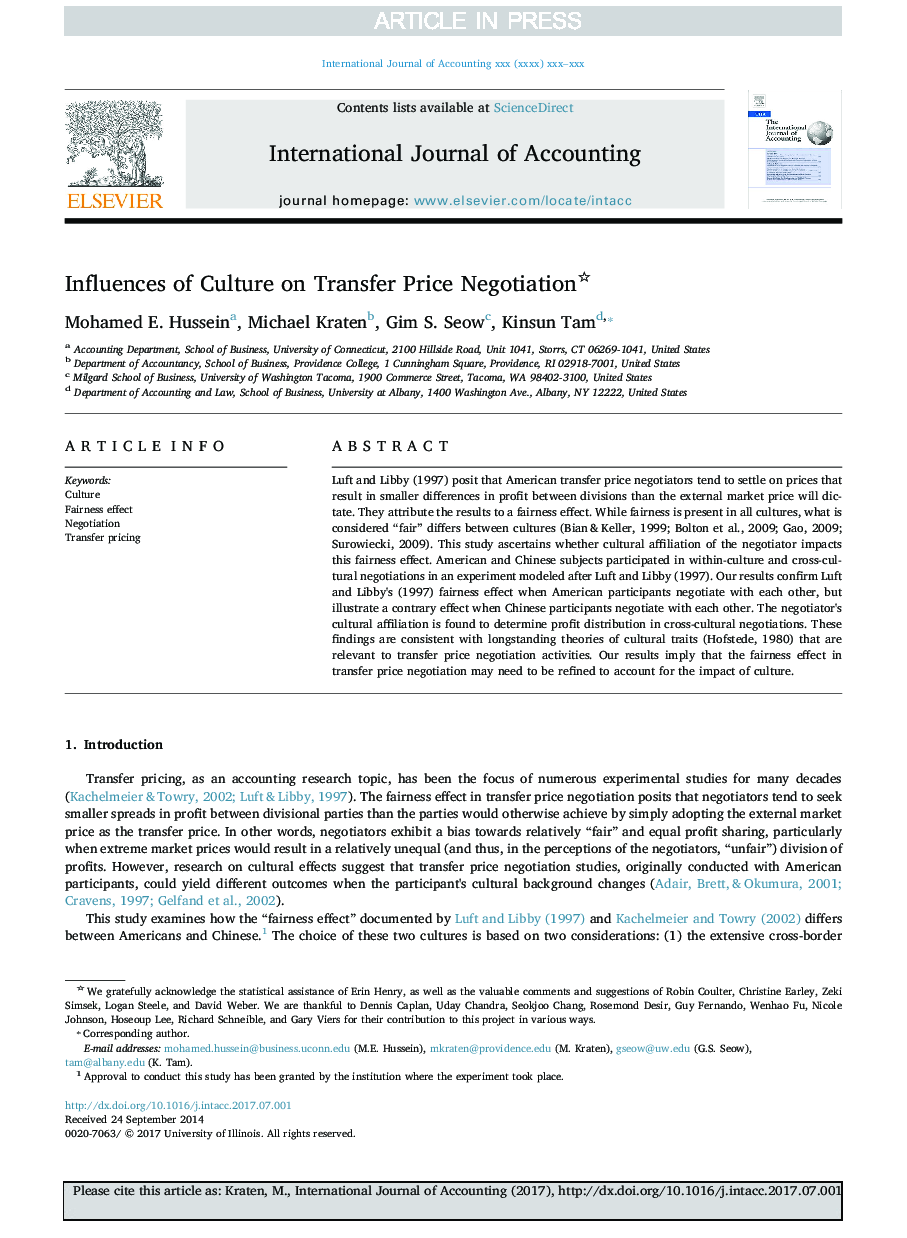| Article ID | Journal | Published Year | Pages | File Type |
|---|---|---|---|---|
| 7415317 | The International Journal of Accounting | 2017 | 11 Pages |
Abstract
Luft and Libby (1997) posit that American transfer price negotiators tend to settle on prices that result in smaller differences in profit between divisions than the external market price will dictate. They attribute the results to a fairness effect. While fairness is present in all cultures, what is considered “fair” differs between cultures (Bian & Keller, 1999; Bolton et al., 2009; Gao, 2009; Surowiecki, 2009). This study ascertains whether cultural affiliation of the negotiator impacts this fairness effect. American and Chinese subjects participated in within-culture and cross-cultural negotiations in an experiment modeled after Luft and Libby (1997). Our results confirm Luft and Libby's (1997) fairness effect when American participants negotiate with each other, but illustrate a contrary effect when Chinese participants negotiate with each other. The negotiator's cultural affiliation is found to determine profit distribution in cross-cultural negotiations. These findings are consistent with longstanding theories of cultural traits (Hofstede, 1980) that are relevant to transfer price negotiation activities. Our results imply that the fairness effect in transfer price negotiation may need to be refined to account for the impact of culture.
Keywords
Related Topics
Social Sciences and Humanities
Business, Management and Accounting
Accounting
Authors
Mohamed E. Hussein, Michael Kraten, Gim S. Seow, Kinsun Tam,
